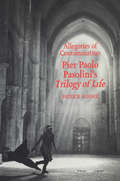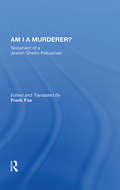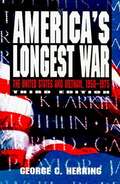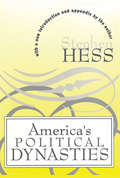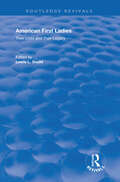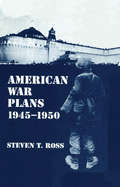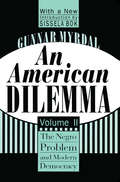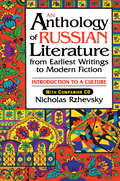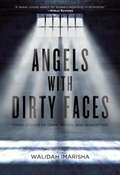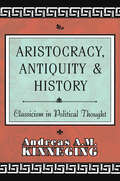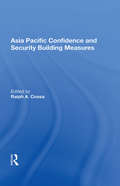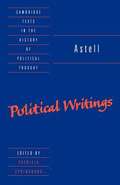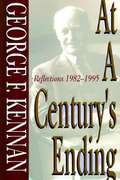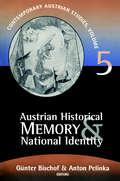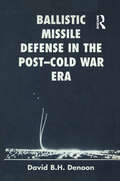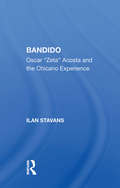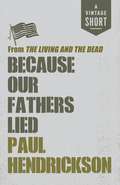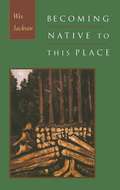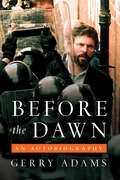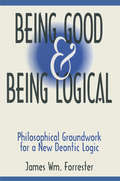- Table View
- List View
Allegories of Contamination
by Patrick RumbleThe Trilogia della vita (Trilogy of Life) is a series of three films that Pier Paolo Pasolini completed before his horrifying assassination in 1975, and it remains among the most controversial of his cinematic works. In Allegories of Contamination Patrick Rumble provides an incisive critical and theoretical study of these films and the Marxist filmmaker's complex, original concept of the cinematic medium.With the three films that make up the Trilogy of Life - The Decameron, Canterbury Tales, and The Arabian Nights - Pasolini attempts to recapture the aura surrounding popular, predominantly oral forms of storytelling through a pro-modern vision of innocent, unalienated bodies and pleasures. In these works Pasolini appears to abandon the explicitly political engagement that marked his earlier works - films that led him to be identified with other radical filmmakers such as Bellocchio, Bertolucci, and Godard. However, Pasolini insisted that these were his 'most ideological films,' and his political engagement translates into a mannerist, anti-classical style or what he called a 'cinema of poetry.' Rumble offers a comparative study based on the concept of 'aesthetic contamination,' which is fundamental to the understanding of Pasolini's poetics. Aesthetic contamination concerns the mediation between different cultures and different historical moments. Through stylistic experimentation, the Trilogy of Life presents a genealogy of visual codes, an interrogation of the subjectivity of narrative cinema. In these films Pasolini celebrates life, and perhaps therein lies their simple heresy.
Am I A Murderer?: Testament Of A Jewish Ghetto Policeman
by Calel PerechodnikIn this moving memoir, a young Polish Jew chronicles his life under the Nazis. In the vain hope of protecting himself and his family, Calel Perechodnik made the wrenching decision to become a ghetto policeman in a small town near Warsaw. The true tragedy of his choice becomes clear when during the Aktion he must witness his own wife and child forced to board a train to the Treblinka extermination camp. Filled with loathing for the Germans, the Poles, his Jewish brethren, and himself, Perechodnik fled the ghetto to shelter with a Polish woman in Warsaw. In the course of 105 terror-filled days in hiding, he poured out his poignant story. Written while Nazi boots pounded the streets of the neighborhood and while his tortured memory was painfully fresh, this memoir has a rare immediacy and raw power. Shortly before his death in 1944, he entrusted the precious diary to a Polish friend. The document was eventually deposited in the Yad Vashem Archives in Jerusalem. Left nearly forgotten for half a century, it was finally published in Poland in 1993. We owe a great debt to historian Frank Fox for bringing us this sensitive translation, which reminds us anew of the power and truth of historical memory.
America in the World
by Frank Costigliola Michael J. HoganThis volume includes historiographical surveys of American foreign relations since 1941 by some of the country's leading historians. Some of the essays offer sweeping overviews of the major trends in the field of foreign/international relations history. Others survey the literature on US relations with particular regions of the world or on the foreign policies of presidential administrations. The result is a comprehensive assessment of the historical literature on US foreign policy that highlights recent developments in the field.
America's Longest War: The United States and Vietnam, 1950-1975 (3rd edition)
by George C. HerringAmericas Longest War provides a complete and balanced history of the Vietnam War. It is not mainly a military history, but seeks to integrate military, diplomatic, and political factors in order to clarify America's involvement and ultimate failure in Vietnam.
America's Political Dynasties: From Adams To Clinton
by Stephen HessThis is the 30th anniversary edition of a book that was hailed on publication in 1966 as "fascinating" by Margaret L. Coit in the Saturday Review and as "masterly" by Henry F. Graff in the New York Times Book Review.The Constitution could not be more specific: "No title of nobility shall be granted by the United States." Yet, in over two centuries since these words were written, the American people, despite official disapproval, have chosen a political nobility. For generation after generation they have turned for leadership to certain families. They are America's political dynasties. Now, in the twentieth century, surprisingly, American political life seems to be largely peopled by those who qualify, in Stewart Alsop's phrase, as "People's Dukes." They are all around us Kennedys, Longs, Tafts, Roosevelts.Here is the panorama of America's political dynasties from colonial days to the present in fascinating profiles of sixteen of the leading families. Some, like the Roosevelts, have shown remarkable staying power. Others are all but forgotten, such as the Washburns, a family in which four sons of a bankrupt shopkeeper were elected to Congress from four different states. America's Political Dynasties investigates the roles of these families in shaping the nation and traces the whole pattern of political inheritance, which has been a little considered but unique and significant feature of American government and diplomacy. And in doing so, it also illuminates the lives and personalities of some two hundred often engaging, usually ambitious, sometimes brilliant, occasionally unscrupulous individuals.
American First Ladies: Their Lives and Their Legacy
by Lewis L. GouldAn historical survey of the impact of individual First Ladies' impact on America and the American woman. A selection of each woman's own writings is given along with a commentary on her influence, and a biography of her life, and the narrative covers all the presidents' wives from Martha Washington to Hillary Rodham Clinton.
American Government: Freedom, Rights, Responsibilities
by Vivian BernsteinAmerican Government tells the story of how our government came to be. You will learn about all the branches of the government and their many jobs and see how leaders are elected, and how people can make a difference. You will learn about the role our government plays as one nation among many, and see that your government is "of the people, by the people, for the people." The book has two important pieces of writing-the Declaration of Independence and the Constitution of the United States.
American War Plans 1945-1950
by Steven T. RossIn late 1945, it became clear that the Soviet Union was an aggressive power. American military planners began to develop strategies to deal with the frightening possibility of a war with the Soviet Union. This work examines those plans.
An American Dilemma: The Negro Problem and Modern Democracy, Volume 2 (Black And African-american Studies)
by Gunnar MyrdalIn this landmark effort to understand African American people in the New World, Gunnar Myrdal provides deep insight into the contradictions of American democracy as well as a study of a people within a people. The title of the book, An American Dilemma, refers to the moral contradiction of a nation torn between allegiance to its highest ideals and awareness of the base realities of racial discrimination. The touchstone of this classic is the jarring discrepancy between the American creed of respect for the inalienable rights to freedom, justice, and opportunity for all and the pervasive violations of the dignity of blacks.The appendices are a gold mine of information, theory, and methodology. Indeed, two of the appendices were issued as a separate work given their importance for systematic theory in social research. The new introduction by Sissela Bok offers a remarkably intimate yet rigorously objective appraisal of Myrdal—a social scientist who wanted to see himself as an analytic intellectual, yet had an unbending desire to bring about change. An American Dilemma is testimonial to the man as well as the ideas he espoused.When it first appeared An American Dilemma was called "the most penetrating and important book on contemporary American civilization" by Robert S. Lynd; "One of the best political commentaries on American life that has ever been written" in The American Political Science Review; and a book with "a novelty and a courage seldom found in American discussions either of our total society or of the part which the Negro plays in it" in The American Sociological Review. It is a foundation work for all those concerned with the history and current status of race relations in the United States.
An Anthology of Russian Literature from Earliest Writings to Modern Fiction: Introduction to a Culture
by Nicholas RzhevskyRussia has a rich, huge, unwieldy cultural tradition. How to grasp it? This classroom reader is designed to respond to that problem. The literary works selected for inclusion in this anthology introduce the core cultural and historic themes of Russia's civilisation. Each text has resonance throughout the arts - in Rublev's icons, Meyerhold's theatre, Mousorgsky's operas, Prokofiev's symphonies, Fokine's choreography and Kandinsky's paintings. This material is supported by introductions, helpful annotations and bibliographies of resources in all media. The reader is intended for use in courses in Russian literature, culture and civilisation, as well as comparative literature.
And the Poor Get Prison: Economic Bias in American Criminal Justice
by Jeffrey ReimanFrom the preface: It is obvious that the American criminal justice system is failing in the war against crime and equally obvious that American criminal justice policies often contribute to the very problem that they seek to solve. This book is an attempt to understand this failure: its dimensions, its mechanisms, its causes, and its possible solutions. To understand the failure of the American criminal justice system to protect us, it is necessary to see that the failure is not haphazard. It has a pattern. The criminal justice system devotes most of its resources to fighting against crimes like murder and mugging, crimes characteristically committed by the poor in our society. And, although our prisons are filled with poor criminals, little dent is made in the overall volume of their crimes. Indeed, there is reason to believe that prisons serve more as training grounds for future criminality than for good citizenship.
Angels with Dirty Faces
by Walidah Imarisha"There was a time I believed prisons existed to rehabilitate people, to make our communities safer. . . . When I saw for the first time (but not the last) a mother sobbing and clutching her son when visiting hours were up, only to be physically pried off and escorted out by guards, I knew nothing about that made me safer. This is the heart of this country's prison system. And the prison system has become the heart of America."--Walidah Imarisha, from the introduction.This is no romanticized tale of crime and punishment. The three lives in this creative nonfiction account are united by the presence of actual harm--sometimes horrific violence. Walidah Imarisha, a sexual assault survivor, brings us behind prison walls to visit her incarcerated brother Kakamia and his fellow inmate Jimmy "Mac" McElroy, a member of the Irish gang the Westies. Together they explore the questions: People can do unimaginable damage to one another--and then what? What do we as a society do? What might redemption look like?Imarisha doesn't flinch as she guides us through the complexities and contradictions of transformative justice, eschewing theory for a much messier reality. The result is a nuanced and deeply personal analysis that allows readers to connect emotionally with the stories she shares, and the people behind them.Walidah Imarisha is a writer, organizer, educator, and spoken-word artist. She is the co-editor of Octavia's Brood: Science Fiction Stories From Social Justice Movements and author of the collection of poetry Scars/Stars.
Animal Farm
by George Orwell Russell Baker C. M. WoodhouseRevisit Orwell’s 1946 classic satire Animal Farm As ferociously fresh as it was more than a half century ago, this remarkable allegory of a downtrodden society of overworked, mistreated animals and their quest to create a paradise of progress, justice, and equality is one of the most scathing satires ever published. As readers witness the rise and bloody fall of the revolutionary animals, they begin to recognize the seeds of totalitarianism in the most idealistic organization—and in the most charismatic leaders, the souls of the cruelest oppressors. Note: Does not use standard American spellings.
Annual Report of the Executive Board for the Financial Year Ended April 30, 1997
by International Monetary FundA report from the International Monetary Fund.
Aristocracy, Antiquity and History: Classicism in Political Thought
by Andreas KinnegingThis brilliant critique of the literature on modernity challenges conventional approaches in two fundamental ways: First, the lineage of the modern turns out to be less ancient and glorious than is usually suggested. Modernity is an upstart rather than a scion of an old and celebrated line. The roots of modernity are held to be less secure than previously thought. This leads the author to suggest that the demise of the old is a matter of rhetoric rather than reality. The old was driven underground rather than extinguished. The inherited traditions are deeply embedded in our souls. We turn to modernity as a half-baked worldview to overcome our estrangement from the past.Kinneging examines this sweeping view in the concrete circumstances of the imagined fall of the aristocracy and rise of the enterprising bourgeoisie. But aristocracy, this study reveals a strong and thriving noblesse, not only in places like Russia and Prussia, but also in advanced capitalist states like France and England. Aristocracy, Antiquity, and History shows conclusively that the actual demise of this exploration into the sources of Western thought takes seriously the strength of an aristocratic vision that lives on in a variety of conservative and liberal doctrines.In Aristocracy, Antiquity and History the readers is reacquainted with the democratic potential as in the work of Montesquieu, and the way in which classicism, romanticism, and modernism, far from a sequential set of events, are entwined in the ethic of honor and in the moral order of modern life. In trying to understand modernity, advanced societies cannot help but draw attention to the old by way of contrast. The presence of antiquity, however suppressed or shrugged off, does not disappear, but stays with us in the very act of rebellion against the ancients. This fine work in the history of ideas will serve to redefine and redirect researches in social and political theory for years to come.
Asia Pacific Confidence And Security Building Measures
by Ralph A. CossaThis book provides a summation of many of the key points and insights that emerged during the first meeting of the Council for Security Cooperation in the Asia Pacific Confidence and Security Building Measures Working Group in Washington, D.C., in October 1994.
Astell: Political Writings
by Patricia Springborg Mary AstellThe writings of the High Church Tory pamphleteer Mary Astell (1666-1731) are a remarkable contribution to the constitutional debates that ushered in the modern democratic state. An interlocutor with Swift and Defoe, Astell was perhaps the first systematic critic of Locke's writings. Astell's political pamphlets Reflections upon Marriage, A Fair Way with the Dissenters, and An Impartial Enquiry into the Origins of Rebellion have never been reprinted in their entirety. This new edition makes accessible the major works of an important political theorist.
At a Century's Ending: Reflections, 1982-1995
by George F. KennanAs a participant and observer, Pulitzer Prize-winning and National Book Award-winning author George F. Kennan has left an indelible mark on more than six decades of this century. In this new volume of essays, reviews, and speeches, Kennan reflects on the forces that have gone wildly out of control in this tragic century.
Austrian Historical Memory and National Identity (Contemporary Austrian Studies #Vol. 14)
by Anton Pelinka Gunter BischofWhen the Hapsburg monarchy disintegrated after World War I, Austria was not considered to be a viable entity. In a vacuum of national identity the hapless country drifted toward a larger Germany. After World War II, Austrian elites constructed a new identity based on being a "victim" of Nazi Germany. Cold war Austria, however, envisioned herself as a neutral "island of the blessed" between and separate from both superpower blocs. Now, with her membership in the European Union secured, Austria is reconstructing her painful historical memory and national identity. In 1996 she celebrates her 1000-year anniversary.In this volume of Contemporary Austrian Studies, Franz Mathis and Brigitte Mazohl-Wallnig argue that regional identities in Austria have deeper historical roots than the many artificial and ineffective attempts to construct a national identity. Heidemarie Uhl, Anton Pelinka, and Brigitte Bailer discuss the post-World War II construction of the victim mythology. Robert Herzstein analyses the crucial impact of the 1986 Waldheim election imploding Austria's comforting historical memory as a "nation of victims." Wolfram Kaiser shows Austria's difficult adjustments to the European Union and the larger challenges of constructing a new "European identity." Chad Berry's analysis of American World War II memory establishes a useful counterpoint to construction of historical memory in a different national context.A special forum on Austrian intelligence studies presents a fascinating reconstruction by Timothy Naftali of the investigation by Anglo-American counterintelligence into the retreat of Hitler's troops into the Alps during World War II. Rudiger Overmans' "research note" presents statistics on lower death rates of Austrian soldiers in the German army. Review essays by Gunther Kronenbitter and Gunter Bischof, book reviews, and a 1995 survey of Austrian politics round out the volume. Austrian Historical Memory and National Identity will be of intense interest to foreign policy analysts, historians, and scholars concerned with the unique elements of identity and nationality in Central European politics.
Ballistic Missile Defense In The Post-cold War Era
by David B DenoonWith the end of the Cold War and the visibility of U.S. Patriot missile defenses during the 1991 Gulf War, the cost and benefits of ballistic missile defense systems (BMD) need to be re-evaluated. In this detailed and balanced study, David Denoon assesses new types of short-range and intercontinental missile defenses. In the post Cold War era, two fundamental changes have made missile defense for the United States and its military forces more compelling: The United States and Russia no longer see each other as direct threats and there has been a dramatic proliferation of ballistic missile capability in the Third World. Consequently, U.S. forces deployed overseas are more likely to be at risk and, eventually, the United States itself could become vulnerable to missile threats. With these changes in mind, David Denoon analyzes the current BMD dilemma, arguing that active defenses against missiles should be seen as a form of insurance against catastrophe. He assesses the likelihood of missile attacks and the appropriate level of investment for the United States to defend against such attacks. The book provides an assessment of deterrence and the performance of the Patriot missiles during the 1991 Gulf War, critiques the Strategic Defense Initiative, and analyzes the prospects for new types of short-range and intercontinental missile defenses.
Bandido: Oscar ""zeta"" Acosta And The Chicano Experience
by Ilan StavansThis is a searching examination of the life, work, and mysterious disappearance of the charismatic civil rights activist Oscar Zeta Acostaa leading figure in the Chicano movement of the 1960s..
Because Our Fathers Lied: from The Living and the Dead
by Paul HendricksonRobert S. McNamara was the official face of Vietnam, the technocrat with steel-rimmed glasses and an ironclad faith in numbers who kept insisting that the war was winnable long after he had ceased to believe it was. In his insightful, morally devastating book, The Living and the Dead, Paul Hendrickson juxtaposes Robert S. McNamara's story with those of a wounded Marine, an Army nurse, a Vietnamese refugee, a Quaker who burned himself to death to protest the war, and an enraged artist who tried to kill the man he saw as the war's architect. This is the brilliant, emotional coda where, in meticulous yet compassionate prose, Hendrickson captures his chase after the story of the man and the haunted years of McNamara’s life after Vietnam. A Vintage Shorts Vietnam Selection. An ebook short.
Becoming Native to this Place
by Wes JacksonFrom the book: "It has never been our national goal to become native to this place. It has never seemed necessary even to begin such a journey. And now, almost too late, we perceive its necessity. Unfortunately, the nature of the nativeness toward which we must work has been not merely altered but severely compromised. Part of the reason is that we have eight and a half times as many people in our country as we did when my grandfather was born. Perhaps even worse, the forces that have given us our modern problems--the ozone hole and global warming, acid rain, Three Mile Island and Chernobyl, soil erosion and loss of family farms, and so on--gain power by the decade. Destruction is occurring at an accelerating pace. It has all happened so fast (more than 80 percent of all the oil ever burned has been burned in my lifetime) [He was born 1936.] and it is going to get worse--half of Mexico's population is under fifteen years of age, ready for a major explosion. The world is slated to add one billion people in the 1990s alone. More people will be added in ten years than the total population of the earth at the time of Columbus. This book is dedicated to the idea that the majority of solutions to both global and local problems must take place at the level of the expanded tribe, what civilization calls community. In effect, we will be required to become native to our little places if we are to become native to this place, this continent"
Before the Dawn: An Autobiography
by Gerry Adams&“In this compelling memoir of his early life, the president of Sinn Féin . . . recalls the development of the modern &‘Troubles&’ in Northern Ireland&” (Kirkus). Gerry Adams was the president of Sinn Féin, the political wing of the Irish Republican Amy, for more than thirty years. In this autobiography of his early life, he shares a personal account of the political unrest and violence of the 1970s and 80s. He opens up about his imprisonment, secret talks with the British government, his leadership role in Sinn Féin, and the tragic hunger strike by imprisoned IRA prisoners in 1981. Born in 1948, Adams vividly recalls growing up in the working-class Ballymurphy district of West Belfast, where he became involved in the civil rights campaign in the late 1960s. When the unionist regime responded to the protests with violence, the situation exploded into conflict. Adams recounts his growing radicalization, his relationship with the IRA, and the British use of secret courts to condemn republicans. Adams was a political prisoner who spent a total of five years in the notorious Long Kesh prison camp. Though he opposed the hunger strike, Adams was instrumental in the mass campaign of support which saw Bobby Sands elected to British Parliament and Ciaran Doherty and Kevin Agnew elected to Irish Parliament. First published in 1996, this edition contains a new introduction and epilogue written by the author, covering Adams&’s family, Brexit, and the peace process.
Being Good and Being Logical: Philosophical Groundwork for a New Deontic Logic
by James W. ForresterThis work represents an attempt to show that standard systems of deontic logic (taken as attempts to codify normal deontic reasoning) run into a number of difficulties. It also presents a new system of deontic logic and argues that it is free from the shortcomings of standard systems.
